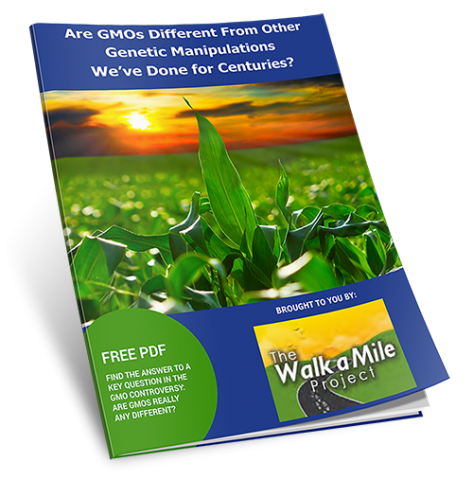Could GMOs Help Fight Cancer?
Cancer isn’t a pleasant topic, but it’s an all too important one right now. After Heart Disease, Cancer kills the most Americans every year. 584,881 people a year, in fact, according to the CDC.
Millions of Cancer research dollars are spent, yet many people wonder about the payoff. According to the National Cancer Institute Research Portfolio in 2011, breast cancer receives the most funding for research.
“This is because of how effective the breast cancer lobbying and activist groups have been in obtaining research funding,” says David Chan, MD, Oncologist.
But what about the results?
He tells us, “As a breast cancer specialist, I can say that we spend multiple hundreds of millions on clinical studies that show improvements of 2 percent to 3 percent. These small incremental advances in treatment would be laughable or ignored in other cancers. We aren’t spending our money efficiently. But I can say that we’ve made progress. Cancer patients are living longer, and the newer treatments definitely have less side effects. There are a lot of very dedicated researchers doing their utmost best to find treatments and cures for this terrible group of diseases.”
Which leads us to the next case in point: GMOs as a solution.
When asked if anti-cancer drugs could be delivered to patients through genetically modified fruits and vegetables, acclaimed Indian American researcher Ananda Mohan Chakrabarty, says, “Yes.” He terms genetically-modified organisms (GMOs) as the future of anti-cancer therapy and even preventive medicine.
“The opposition to GMOs would wane if people knew that the genetically modified foods contain anti-cancer agents. They are opposing GMOs because they know such products benefit only the makers. What if the GMOs could serve as carriers of anti-cancer agents,” Chakrabarty said Sept 29th at the Bengal science secture series organized by the West Bengal government’s science and technology department.
Then again, don’t healthy fruits and vegetables already contain natural anti-cancer agents? But still, you have our attention. So how would it work?
He and his colleagues isolated a bacterial protein, azurin, from Pseudomonas aeruginosa and showed that the protein as well as its fragment, called peptide 28, were able to selectively kill cancer cells while not attacking healthy cells. It also had cancer preventive effects.
So Azurin and Peptide 28 — two things to obviously keep an eye on. But why worry about putting these proteins into fruits and vegetables? To be more cost effective, to help poorer communities prevent cancer —
“Young women in rural areas who can’t afford expensive treatment and know they have a history of cancer in their families, could get the essential protein through plants as a preventive measure instead of getting their ovaries and breasts surgically removed”
To continue reading about the topic GMOs help fight cancer, click here:
http://health.economictimes.indiatimes.com/news/industry/gm-plants-could-be-next-anti-cancer-drugs-indian-american-scientist/49159443
For more on the first portion of this post, click here:
http://www.slate.com/blogs/quora/2013/02/07/where_do_the_millions_of_cancer_research_dollars_go_every_year.html



